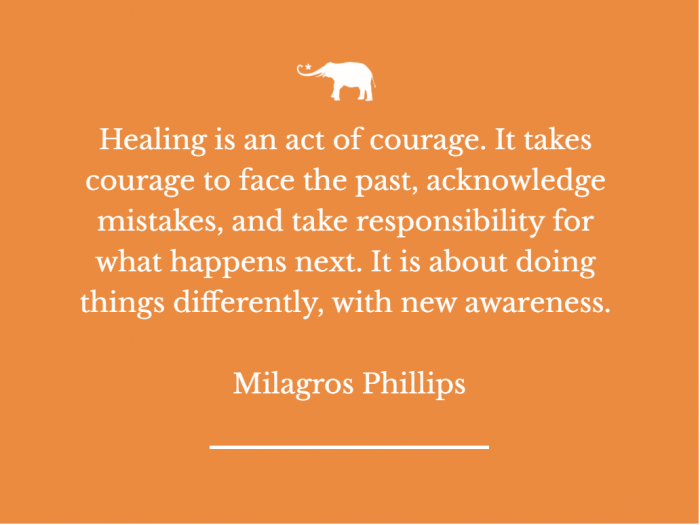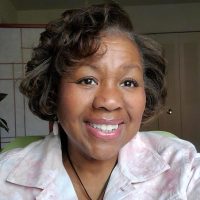Perhaps the word is not missing, but it is certainly misunderstood, when it comes to dealing with race and racism. The word is HEALING. Healing, is considered a soft, wishy-washy, powerless skill that has well been overused. But healing is a restoration of power. Healing is the process we go through on our way to being cured.
Healing is moving from what is wrong/unhealthy/out of order/dysfunctional/not working correctly or at all and treating it back to wholeness. Healing is the pathway that leads to the cure. Healing is about seeing, feeling, and awakening to what is not functioning right and is causing pain (physical, mental, emotional, social, or spiritual). As a result, what is malfunctioning is wreaking havoc in the body, family, community, country, and world.
Healing is moving toward what is right, functioning, relieves the pain, leads to healthy interactions, and reminding us of our wholeness. By understanding and connecting the history to the current pain, we can find a cure that stops the pain, causes understanding, and brings about inner and outer peace. Healing is about releasing the racialized, segregated self and joining the human family.
Healing racism is the missing link to our interpersonal and national discourse. Healing, in this case, is about connecting the heart and mind in one coherent whole that allows the body to feel. Healing is about staying connected to our bodily sensations and discomforts while peeling away the layers of our racial conditioning.
Healing exposes us to uncomfortable truths and holds us compassionately accountable. Excerpted from “Cracking the Healer’s Code: A prescription for healing racism and finding wholeness (2021).
Rather than shaming and blaming, healing racism acknowledges that we all have a lot to learn. So how do we heal from more than 600 years of racial conditioning? First, we begin by becoming race-literate. What is race literacy?
“Race literacy is – the knowledge and awareness of the history of race, how one is acculturated into a racial caste, the systems in the nation-state that support race as a human divide, and the impact of all of the above on our current events and individual lives.” 11 Reasons to Become Race Literate, Milagros Phillips, 2016
History is one of the most critical pieces of the racial healing puzzle. History gives context to our racial actions, reactions, and interactions. It helps us put things in perspective, and it provides a foundation for our current events. History helps us understand the basis of our racial biases. Knowing our history can keep us from repeating the past. When we visit the doctor’s office, one of the first things they have us do is give an account of our medical history. If we are to heal, we need to know what preceded our current circumstances.
Healing requires an honest appraisal of what got us to this present moment. Hiding the shadow of a violent past doesn’t make it go away. It only masks the reality we need to begin to heal. As long as we avoid the shadow, the shadow has us in its grip. There is only one way to be set free, and that is to face our ugly past. The moment we do that, recovery can begin.
Healing is an act of courage. It takes courage to face the past, acknowledge mistakes, and take responsibility for what happens next. Healing is about doing things differently. It is about doing things with a new awareness.
Healing from racism requires an awareness of trauma and its continual effect on People of Color. It requires patience and compassion. Healing is about holding ourselves accountable for our behavior. It is about taking risks and making mistakes. It is about apologizing when we get it wrong, forging forward, and vowing to do better next time.
Healing is about listening to and believing People of Color when they talk about what is happening to them. As we start recovering from our racial conditioning, we begin to see ourselves in others. We become conscious of our past mistakes, our judgments, and our prejudices. We start seeing the pathology of our racial conditioning. We see the effects of segregation on our behavior. We stop normalizing the dysfunction.
More importantly, we see ourselves as a vital part of the human family. We strengthen our belief in ourselves and our faith in others. We create a new vision of the world, and we start to work toward it. We become more honest, more authentic, and more grounded. We look for ways to be helpful by asking what others need, rather than assuming that what is good for us is good for them.
As we heal, we see the world differently. We have a sense of belonging, and we feel that others belong. We make room at the table for those who have been marginalized. We keep an open mind, and most of all, an open heart.









Read 0 comments and reply